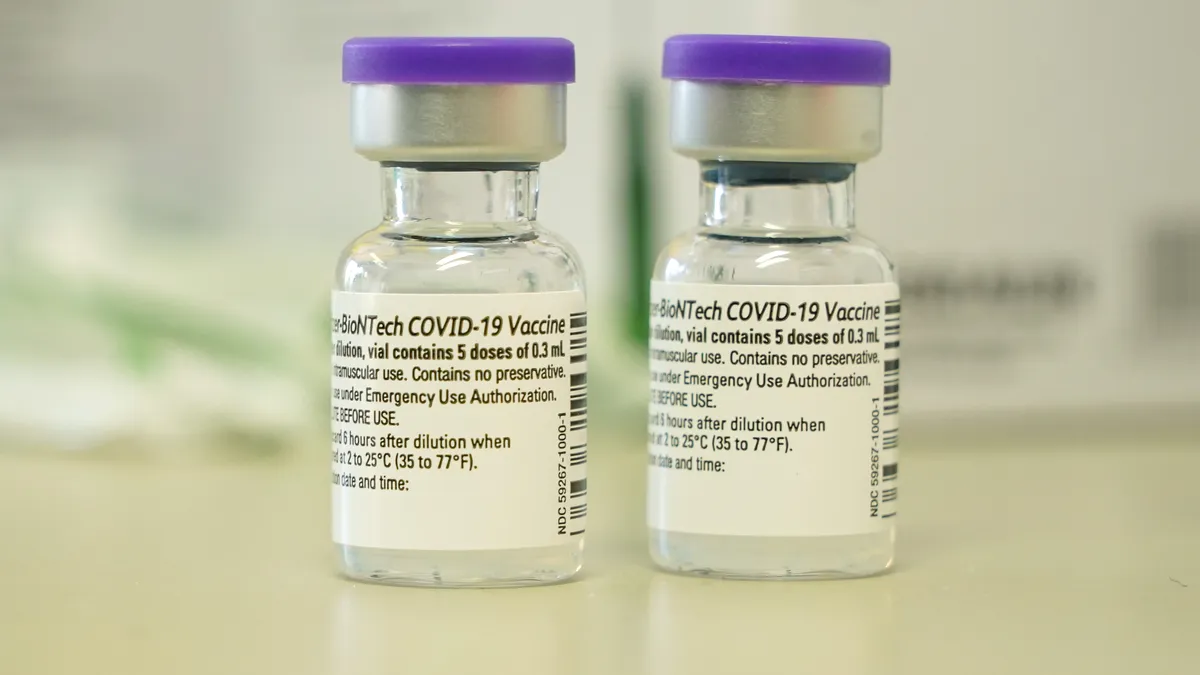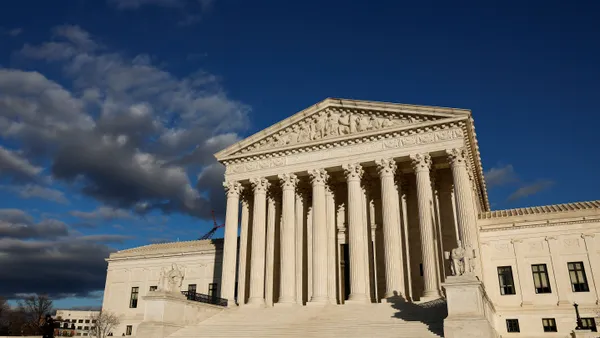Dive Brief:
- Tampa Bay, Florida-based Brandon Dermatology will stop collecting COVID-19 test results of employees’ family members to resolve findings by the U.S. Equal Employment Opportunity Commission that doing so violates the Genetic Information Nondiscrimination Act, the agency announced July 6.
- Collecting the COVID-19 test results runs afoul of GINA’s prohibition on requesting, requiring or purchasing genetic information about applicants, employees or their family members, except in very narrow circumstances, which didn’t apply here, the EEOC said. Pursuant to a conciliation agreement, the dermatology office will also pay compensatory damages and back pay to affected workers and restore their leave time, according to the announcement.
- The agreement “illustrates the need for employers to review their COVID-19 policies and practices in conjunction with the EEOC’s technical assistance related to the COVID-19 pandemic,” Tampa field office director Evangeline Hawthorne noted in the release. The agency also praised Brandon Dermatology for its “willingness to proactively tackle this issue once it was brought to its attention,” Chelsae Ford of the EEOC’s Miami district said.
Dive Insight:
Title II of GINA prohibits discrimination against employees or job applicants because of genetic information, according to an EEOC guidance. For example, it would be illegal for an employer to reassign an employee from a job it believes is too stressful after learning the employee had a family medical history of heart disease, an EEOC fact sheet points out.
Relevant here, genetic information includes information about the medical history of an employee’s family member, such as the manifestation of a disease or disorder because family medical history is often used to determine whether someone has an increased risk of getting a disease, disorder or condition, the guidance explains.
Issues involving GINA frequently arise when an employer has to verify medical information for a leave request under the Family and Medical Leave Act or an accommodation request under the Americans with Disabilities Act, an expert previously told HR Dive. When employers ask for medical information, they need to communicate that they aren’t asking for genetic information, the expert said.
In the context of COVID-19, employers don’t trigger GINA concerns by requiring employees to get vaccinated, according to the EEOC’s technical assistance. If the employer or its agent administers the vaccine, the pre-shot screening can’t include questions about an employee’s genetic information, such as asking about family medical history, the EEOC says. GINA also doesn’t prohibit employers from requiring employees to show they’ve been vaccinated by another provider.
In addition, employers can offer incentives to employees to get vaccinated without triggering GINA concerns, the technical assistance says. This may be helpful in states that restrict employers from mandating COVID-19 vaccinations. For example, as of July, Florida and Montana ban businesses from requesting “vaccine passports,” (paper or digital documents showing that an individual has been vaccinated against COVID-19), according to an AARP report, which includes a summary of the various state rules.
By contrast, in late June, the Supreme Court declined to hear a challenge to New York’s mandate, which requires healthcare staff in medical facilities to be vaccinated against COVID-19. The mandate provides for medical exemptions, but a group of healthcare workers challenged the rule because it doesn’t include a religious exemption.
Other state mandates vary, according to the AARP report. Colorado requires state contractors to be vaccinated against COVID-19 or get tested twice a week. Similarly, Connecticut requires vaccines for state employees and staff at schools and childcare facilities, although certain employees may be able to forgo the vaccine and opt for weekly testing. Both states offer exemptions to individuals with a medical condition or a sincerely held religious belief.
Under the ADA and Title VII of the Civil Rights Act of 1964, employers must provide a reasonable accommodation, absent undue hardship, to employees or job applicants who object to an employer rule (such as a vaccine mandate) due to a disability or sincerely held religious belief. The ADA allows employers to require that individuals don’t pose a direct threat to the health or safety of the workplace, but employers must follow strict guidelines in determining if an unvaccinated individual poses a direct threat.













